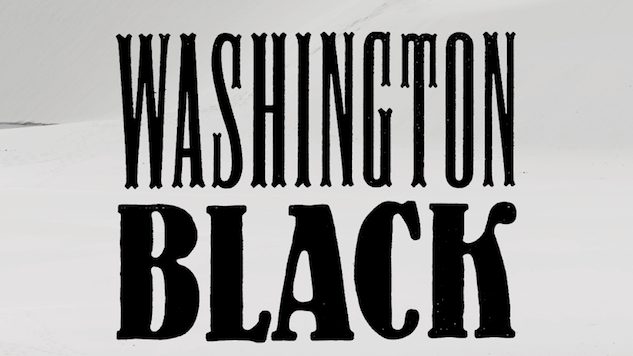Introducing Endless Mode: A New Games & Anime Site from Paste
It’s not some deific whim that lifts Washington “Wash” Black from slavery in the Barbadian cane fields and deposits him on the barren ends of the earth. Instead, science proves the motivating factor behind Esi Edugyan’s picaresque, exigent and painful search for fact—or fervent belief in what was then called fact—in her Man Booker Prize shortlisted novel, Washington Black.
 Eleven-year-old Wash is chosen by his slavemaster’s brother, a naturalist named Christopher “Titch” Wilde, to become a manservant, because Wash is the perfect size to act as ballast in the brother’s hot air balloon-like craft. Titch soon decides to have Wash become his assistant, eventually discovering the boy’s preternatural talents as an illustrator. It’s science that bears the pair aloft from Faith Plantation to a temporary haven in Virginia. And it’s through science that we learn what little we do of Titch’s scar, the phantom rictus traced along his cheeks.
Eleven-year-old Wash is chosen by his slavemaster’s brother, a naturalist named Christopher “Titch” Wilde, to become a manservant, because Wash is the perfect size to act as ballast in the brother’s hot air balloon-like craft. Titch soon decides to have Wash become his assistant, eventually discovering the boy’s preternatural talents as an illustrator. It’s science that bears the pair aloft from Faith Plantation to a temporary haven in Virginia. And it’s through science that we learn what little we do of Titch’s scar, the phantom rictus traced along his cheeks.
Wash’s talent for scientific illustration endears him to the powerful white men in his life, even as it sets him apart from his fellow black men. It’s a shining light in a shadowed age, throwing into relief the inequities and disastrous wrongs of the societies, Caribbean and continental, in which he moves. In the severe outposts of science above the Arctic circle and in the African desert, in the tidal pools and beneath the gunmetal waters of the North Atlantic, Wash discovers an entire existence impossible to imagine from the shacks and savagery of slavery.
But it’s science as well, Edugyan makes clear and Wash comes to realize, that placed people in chains. Instead of demystifying, science dehumanized and provided the supposed basis for the superiority of whites, a foundation which empathy and humanity need chip away. In ledgers recording Wash’s fellow slaves as one would tally business assets, we find the dehumanizing process of numbers, lives reduced to black and white. It’s science that drips like venom from the mouth of the slave hunter who chases Wash to the Canadian wilds, whose viperine countenance conjures one of the most original and horrifying antagonists of fiction in mere pages.
It’s also through science that Wash learns to read, through science that he finds love, discovers his calling and leaves his mark upon the world—as science and the world have left their mark upon him. The time is too cruel, and Edugyan too masterful, to promise us that Wash’s contributions to our understanding of the ocean—which find a former slave boy as Neptune, master of a living sea—will ever be rightfully acknowledged in his own lifetime.
But what is certain is that Wash will forever search, proving himself as restless and relenting as science itself.
B. David Zarley is a freelance journalist, essayist and book/art critic based in Chicago. A former book critic for The Myrtle Beach Sun News, he is a contributing reporter to A Beautiful Perspective and has been seen in The Atlantic, Hazlitt, Jezebel, Chicago, Sports Illustrated, VICE Sports, Creators, Sports on Earth and New American Paintings, among numerous other publications. You can find him on Twitter or at his website.

 Eleven-year-old Wash is chosen by his slavemaster’s brother, a naturalist named Christopher “Titch” Wilde, to become a manservant, because Wash is the perfect size to act as ballast in the brother’s hot air balloon-like craft. Titch soon decides to have Wash become his assistant, eventually discovering the boy’s preternatural talents as an illustrator. It’s science that bears the pair aloft from Faith Plantation to a temporary haven in Virginia. And it’s through science that we learn what little we do of Titch’s scar, the phantom rictus traced along his cheeks.
Eleven-year-old Wash is chosen by his slavemaster’s brother, a naturalist named Christopher “Titch” Wilde, to become a manservant, because Wash is the perfect size to act as ballast in the brother’s hot air balloon-like craft. Titch soon decides to have Wash become his assistant, eventually discovering the boy’s preternatural talents as an illustrator. It’s science that bears the pair aloft from Faith Plantation to a temporary haven in Virginia. And it’s through science that we learn what little we do of Titch’s scar, the phantom rictus traced along his cheeks.